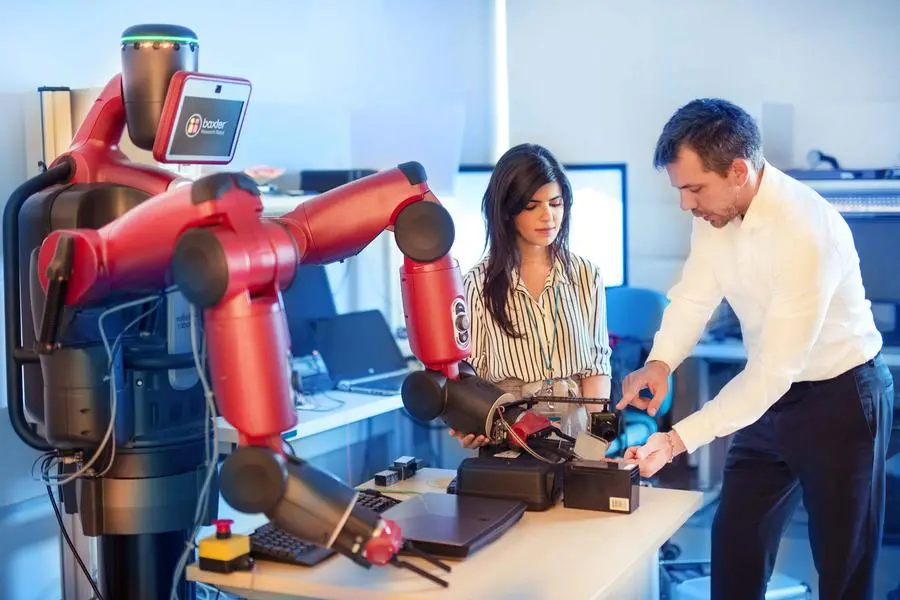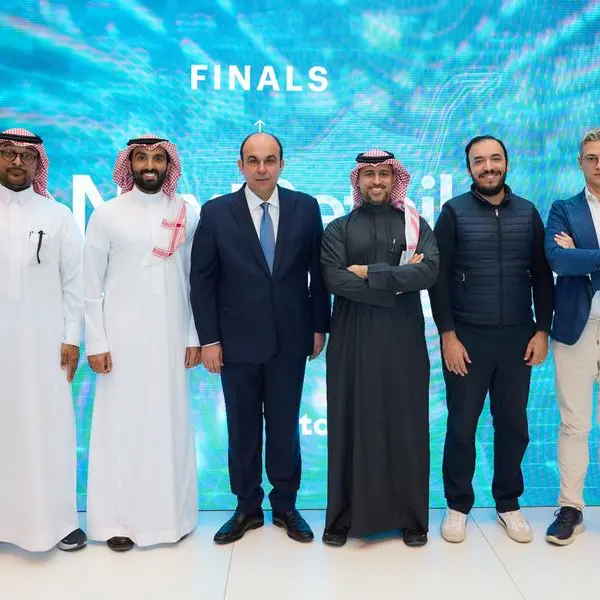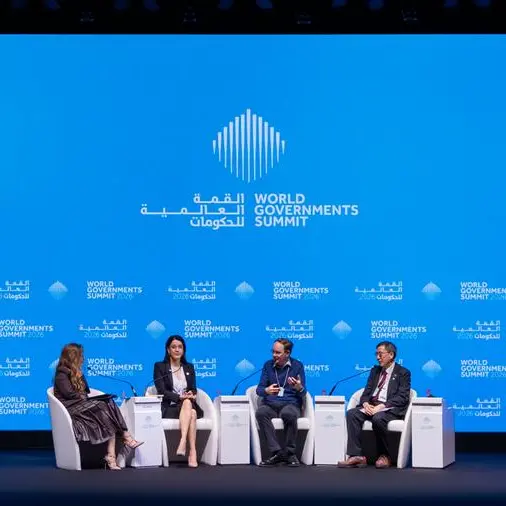PHOTO
Abu Dhabi-UAE – Khalifa University of Science and Technology today announced dedicated forums and workshops focusing on the critical role of robotics in achieving the United Nations Sustainable Development Goals (SDGs) will be part of the 36th edition of the IEEE/RSJ International Conference on Intelligent Robots and Systems (IROS 2024) that is themed ‘Robotics for Sustainable Development’.
IROS 2024 comes to the Middle East and North Africa (MENA) region for the first time and will be held from 14-18 October 2024 at the Abu Dhabi National Exhibition Center (ADNEC). The event will bring together leading researchers, academics, industry professionals, and corporate giants from around the globe to explore the latest advancements in robotics and their impact on sustainability. It will focus on leveraging robotics to address pressing global challenges, including ocean conservation, climate change mitigation, and healthcare accessibility.
Dr. Jorge Dias, General Chair, IROS 2024 and Director, Khalifa University-Center for Autonomous Robotic Systems, said: "Khalifa University is delighted to organize the IROS 2024 in Abu Dhabi to highlight the crucial role of robotics in achieving a sustainable future, in line with its theme. Driving progress towards the UN SDGs with the next generation of sustainable robotics, IROS 2024 will facilitate in-depth discussions, knowledge sharing, and collaboration on critical topics. This landmark event will showcase the transformative power of robotics through several dedicated forums and workshops, targeting different sectors to provide a unique platform for collaboration and innovation."
A forum on ‘Marine Robotics in Ocean Decade Initiative for Sustainable Development’ will bring together representatives from industry, government, and academia to discuss opportunities and new collaborations for utilizing robots and advanced engineering solutions to address ocean sustainability challenges. A collaboration between IEEE- Oceanic Engineering Society and IEEE- Robotics and Automation Society, this forum will explore the use of marine robotics for ocean monitoring, ecosystem preservation, and early warning systems for environmental disasters. Reversing the decline of the state of the ocean system and finding new opportunities for sustainable development of the marine ecosystem will also be discussed.
The various ways robotics and AI can contribute to sustainable development will be addressed in the forum on ‘Robots for Sustainability and Sustainable Robots’ which will include the development of sustainable robots and examine how robots can be designed and deployed to minimize their environmental impact and promote responsible resource management.
Promoting sustainability in the medical sector will be a forum on ‘Sustainable Medical and Surgical Robotics’ focusing on the potential of low-cost medical and surgical robotics to improve healthcare accessibility and affordability. This forum will also cover the development of surgical robotics to improve healthcare outcomes for all, particularly for communities in need. The forum committee has a diverse group of experts including Dr. Paolo Fiorini, Needleye Robotics, Dr. Kinda Khalaf, Khalifa University, and Dr. Pietro Valdastri, University of Leeds, who will discuss the latest innovations and challenges in developing sustainable solutions for medical robotics and the One Health approach.
With its focus on the UN Sustainable Development Goals, IROS 2024 presents several opportunities to engage with cutting-edge advancements in robotics and their applications for sustainable development. Providing a dynamic platform for collaboration among leading researchers, industry experts, and innovators, IROS has specialized forums and workshops that address critical global issues such as marine conservation, climate change, and healthcare accessibility, highlighting the transformative potential of robotics for a more sustainable future.
The list of forums during IROS 2024 is as follows:
- Robots for Sustainability and Sustainable Robots
- Europe Regulates Artificial Intelligence: The Challenge for Robotics
- Government Forum: Funding for Robotics Research
- Robotics in Africa Forum
- Robotics & AI in the UAE: Research Innovation and Entrepreneurship
- Human-Avatars Symbiosis: Can you imagine a future society where you can remotely control multiple avatars?
- Empowering Diverse Voices in Robotics
- Sustainable Medical and Surgical Robotics
- Moonshot R&D Program Goal 3 Forum. Envisioning a Future of Human-Robot Co-living: Potential for Robotics to Transform Human Lives
- Marine Robotics in Ocean Decade Initiative for Sustainable Development
- The Future of Work: AI-Enhanced Robotics and Human Interaction Research in M3S
- Industrial Opportunities and Socio-Economic Impact of Medical Robotics
- Robots for a Better Tomorrow: Wellbeing Through Advanced Technology
More information at https://iros2024-abudhabi.org/
-Ends-
About Khalifa University of Science and Technology
Khalifa University of Science and Technology, the UAE’s top-ranked research-intensive institution, focuses on developing world leaders and critical thinkers in science, engineering and health science. The world-class university endeavors to be a catalyst to the growth of Abu Dhabi and the UAE’s rapidly developing knowledge economy as an education destination of choice and a global leader among widely acknowledged international universities.
For more information, please visit: http://www.ku.ac.ae/
For further information, please contact:
Orient Planet Group (OPG)
Email: media@orientplanet.com
Website: www.orientplanet.com




















